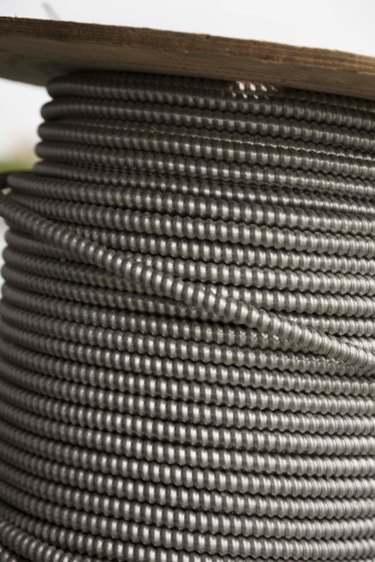
Stress cones add an extra layer of safety to electrical and motor insulation. These cylindrical cones conduct heat and electricity to spread voltage across the wire, preventing electrical surges and fires. Typically, stress cones are used for wires between 6 KV and 25 KV, but they can be used for wires with a higher voltage.
Purpose of Stress Cones
Video of the Day
Stress cones help insulate connectors, cables and terminals. Cones help prevent insulation failure caused by the high concentration of electricity and heat between shield termination, cables and cable conductors. Often, stress cones serve as a backup, in case the semi-conductor layer of wiring fails, and help spread the electricity and heat throughout the wiring, preventing energy surges that cause power failure, electrical problems and fires.
Video of the Day
Uses for Stress Cones
Used both outdoors and indoors, stress cones attach to terminals during wire-laying. Stress cones are used with terminals that utilize from several hundred volts to 25KV. In instances where extra insulation is required, stress cones are used with potheads, also known as bell-shaped insulators. Common uses for these cones include industrial wiring, home construction and wiring computer networks. Cones are used with both shielded and unshielded wire. Typically, they are installed as part of the wiring process during any major construction or installation.
Construction of Stress Cones
Stress cones, shaped like a cylinder with a cone on the top, attach to the cylindrical terminal of high-voltage wires. These cones increase the shield termination's separation from the conductor cable. The thermal conductivity of stress cones is due to housing made out of either porcelain or polymer. Construction materials vary, depending on the voltage the stress cone is suited for.
Motors
The most common use for stress cones, outside of electrical wiring and installation, is for high-voltage motors, such as those found in heavy machinery. In many cases, the motor maker provides no stress cones, and you must supply them yourself. Slide a stress cone over the terminal that connects to a high-voltage cable to keep the motor insulated properly.